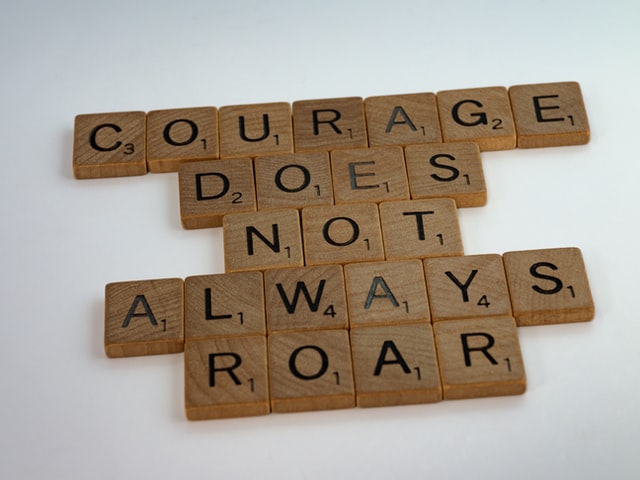Are You Mourning The Loss Of A Loved One?
The grieving process is an emotional roller-coaster. You may suffer from sudden outbursts of crying and irritability. One day you may be flooded with warm and pleasant memories of your loved one. The next you may feel overwhelmed with guilt, as if you didn’t do enough for them while they were alive. The “woulda, coulda, shoulda” factor raises its ugly head—you wished you had been there when they passed away or had told them that you loved them more often. You may ask yourself: Will I ever move forward in life? Will I ever find a way through the darkness of grief? |
Losing A Loved One Can Make You Feel Like You’re No Longer The Same Person
Grieving can shake up your sense of identity. In the wake of your loss, you may struggle to figure out who you are apart from your loved one. Perhaps you feel like life has no meaning anymore. Maybe you’ve begun to question your deepest beliefs about life, death, and spirituality. You may not even want to move forward in life—doing so feels dishonouring your loved one. You’d rather hold onto their memory even if it makes you sad.
You’re probably feeling a million emotions right now—that’s okay. Nothing in life is harder than grieving. No one should have to do it alone. As a grief coach, I am confident that I can help you embrace a brighter, happier future while still holding the memory of your loved one dear.
You’re probably feeling a million emotions right now—that’s okay. Nothing in life is harder than grieving. No one should have to do it alone. As a grief coach, I am confident that I can help you embrace a brighter, happier future while still holding the memory of your loved one dear.
Most Of Us Aren’t Taught How To Work Through Grief
|
Everyone grieves at some point in life. The problem is that we’re never taught how to work through it. This is why it’s so common for people to tell us to “move on” after two or three months of grieving. Most people don’t realize that grief is unpredictable—everyone’s grieving experience is different.
What’s more, we often copy what we saw our parents and caregivers do when we were children. If we never saw them cry over the loss of a loved one, we might think it’s wrong to show our feelings when we’re sad. As a result, we may hide our emotions until a loss comes along that overwhelms our emotional storage tank, leaving us with more than we can handle. |
The Pandemic Has Rewritten The Rules Of Grieving In Our Society
COVID-19 has disrupted support systems that were in place in the past. Many funerals and celebrations of life have had to wait over a year. The rituals around death are pillars for our souls to heal. Taking them away has made grieving even harder.
In many ways, the pandemic has created a world of solitary grievers. Widespread isolation has compounded feelings of despair and overwhelm. This is why grief coaching is so important. As someone who has been through the grieving process myself, I am here to walk with you in your darkest hour and help you deal with the pain of your loss.
In many ways, the pandemic has created a world of solitary grievers. Widespread isolation has compounded feelings of despair and overwhelm. This is why grief coaching is so important. As someone who has been through the grieving process myself, I am here to walk with you in your darkest hour and help you deal with the pain of your loss.
Grief Coaching Can Help You Find Peace In The Midst Of Your Sorrow
|
It’s tempting to try and overcome grief by working excessively, binge-watching Netflix, or turning to other habits. The problem is that all of those endeavours are short-term fixes. Grief will always be a part of us—as long as we live, we will love the person who has died. So instead of overshadowing feelings of grief, we must learn how to grow around them. Rather than “move on,” we must learn to move forward.
Grief coaching is a chance to do just that. I want to provide you with a safe space to process your grief and express your feelings. I understand that everyone mourns differently. That’s why I will adjust the healing process to suit your needs. Here, you don’t have to worry about being judged for how long you’ve been grieving or how you express your grief. There is no right or wrong way to mourn. I will honour your unique way of coping with this difficult time. |
What To Expect In Sessions?
The main approach I use in grief coaching is my training in art therapy. I started using art therapy in 2000 and it has worked wonders in the lives of my clients. The goal of art therapy is to give your emotions a voice when words won’t suffice. We will use art-making tools like paint, markers, coloured pencils and crayons to reflect on your loved one’s life and release emotions that are painful to keep inside.
You do not need to be an artist to participate in art therapy. The important thing is the process of creation and reflection that happens when you translate your feelings into pictures when words are missing. It doesn’t matter how well you can paint, draw, or write. What matters is how you feel when you do so. Art therapy can equip you with new strategies for coping with grief and loss in daily life.
You do not need to be an artist to participate in art therapy. The important thing is the process of creation and reflection that happens when you translate your feelings into pictures when words are missing. It doesn’t matter how well you can paint, draw, or write. What matters is how you feel when you do so. Art therapy can equip you with new strategies for coping with grief and loss in daily life.
Using Your Creativity To Work Through Grief
|
Whether you prefer writing, music, or visual art, you will use your creativity to reflect on the treasures or difficulties from your relationship with your loved one. I will help you prepare creative rituals for anniversaries and special dates to fill your heart with love and self-care. Additionally, you will create a biography about your personal timeline of loss. This biography, accompanied by painting or drawing, can help you remind yourself of your resilience over the course of your life.
Right now, you may feel overwhelmed by your loss and scared to look at your feelings. Grief coaching can help you learn to deal with the ups and downs of the bereavement process. With my help and support, I believe that you can learn new skills for coping with your loss while still maintaining a special place in your heart for your loved one. |
You May Have Some Concerns About Grief And Loss Coaching…
Nothing will bring my loved one back and I’ll never feel the same way again.
The moment your loved one died, you had to step up and grow into a new version of yourself. In a sense, then, you will never feel the same way again. That’s okay. The fact that you feel differently shows that you are already growing into a new version of yourself. Therapy is a time to figure out what you want that version to look like.
I’m not an artist so I don’t think art therapy is for me.
Art therapy often works better if you’re not an artist. Many artists are set on creating the perfect work of art. Our focus is on the process of making art, not how good of an artist you are. Your soul will guide you and the colours and materials are there to help you express the feelings that lie hidden beneath your grief.
I don’t think I can afford grief coaching.
Finances are important. I don’t want you to stretch your wallet thin. That said, grief coaching is an investment with benefits that can last for the rest of your life. What’s more, even though I don’t take insurance, I offer a payment plan with two installments. This way, you won’t have to worry about paying for the entire healing process at once.
Let Me Help You Find New Meaning In The Face of Your Loss
Grieving is not just about mourning what is lost. It’s also about rediscovering your sense of purpose. If you want to find out what that purpose is, I encourage you to contact me.




